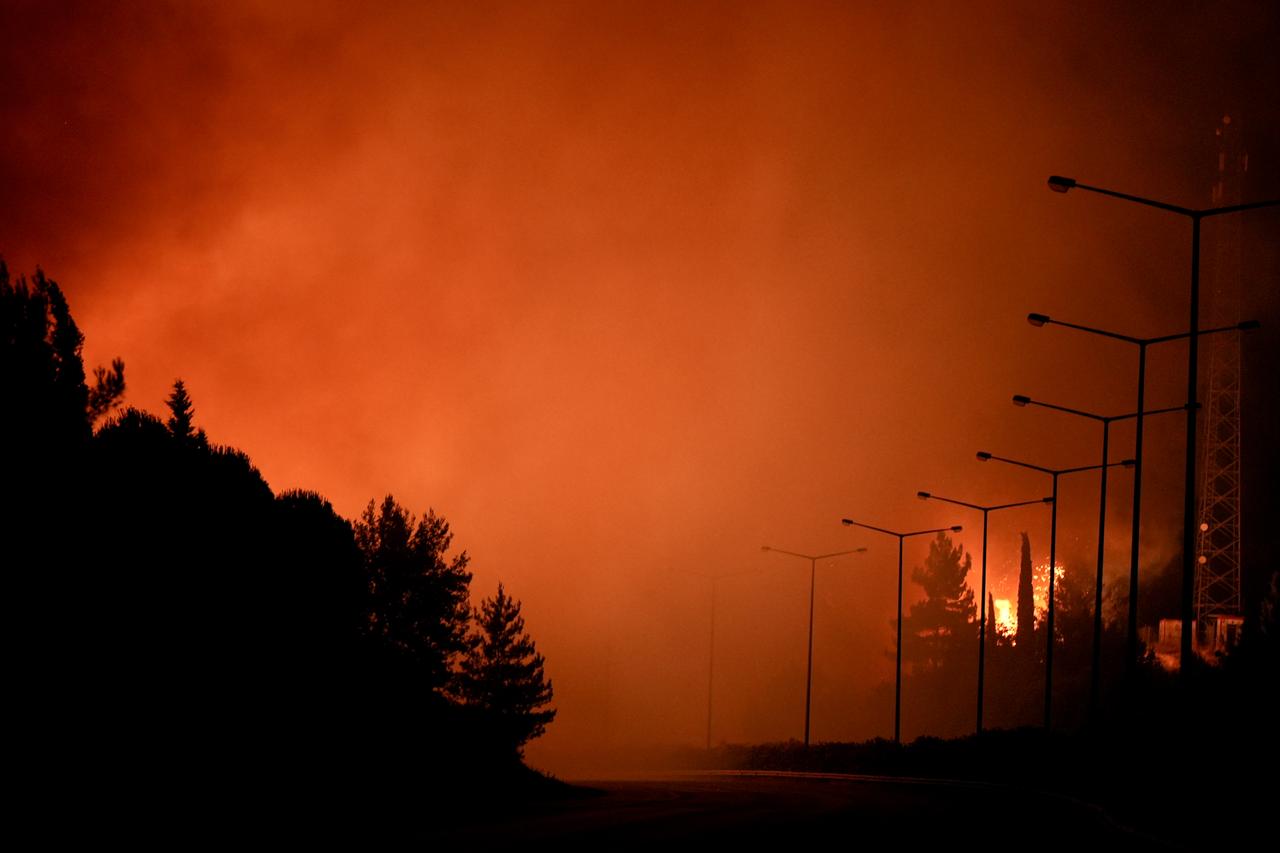
Izmir province is grappling with several major wildfires that have forced widespread evacuations, killed at least two people, and threatened both residential areas and industrial zones across multiple districts. The fires, which authorities say originated from electrical lines, have prompted the deployment of massive firefighting resources as strong winds continue to fuel the blazes.
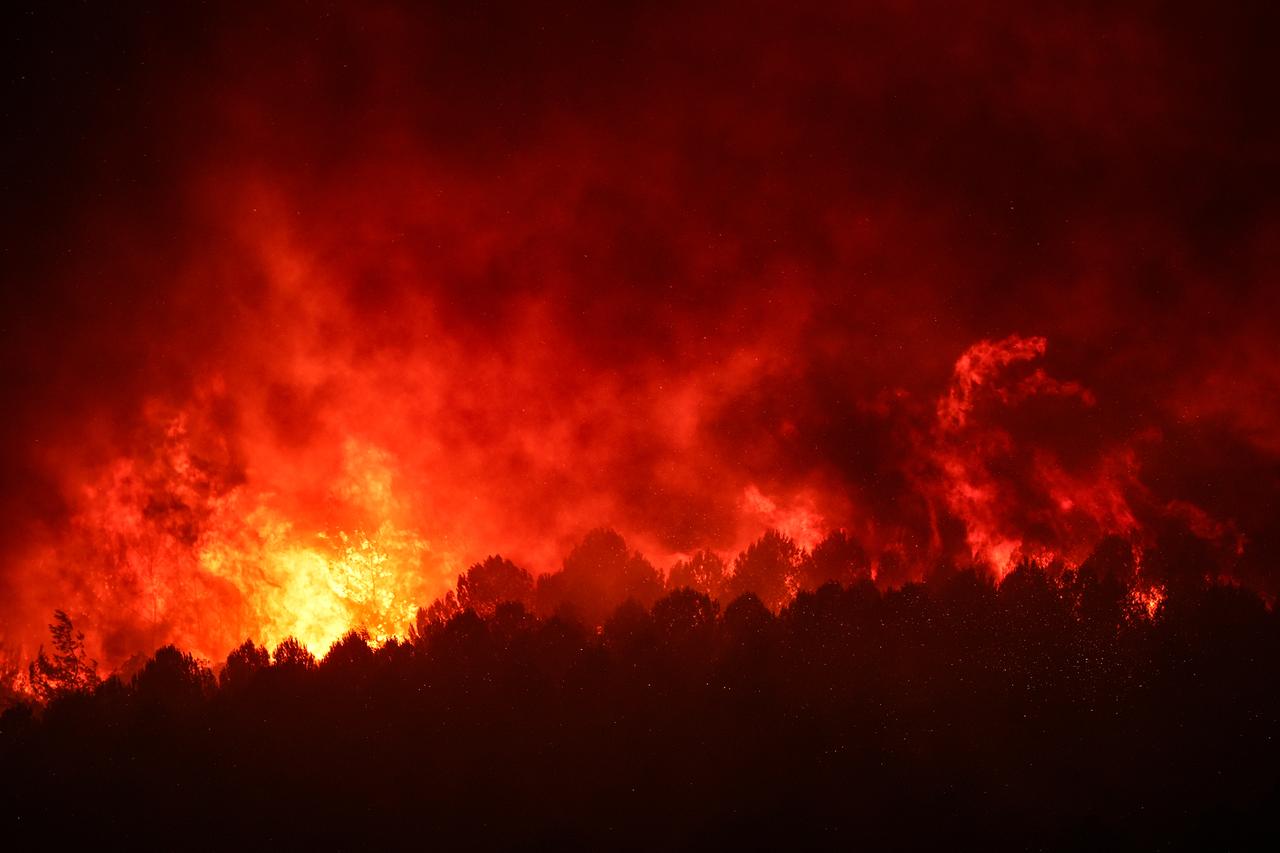
The deadliest fire has struck Izmir's Odemis district, where flames that began Tuesday evening near Tosunlar neighborhood's Manastir area have claimed two lives. Ibrahim Erkan, an 81-year-old bedridden man, died when fire engulfed his home in Sucikti neighborhood after his family was unable to evacuate him in time due to smoke inhalation.
A second fatality occurred when forest worker Ibrahim Demir was killed while battling the Odemis blaze. Agriculture and Forestry Minister Ibrahim Yumakli described Demir as having been "martyred while fighting to protect the green homeland."
The Odemis fire has forced the evacuation of four villages - Tosunlar, Sucikti, Koseler, and most recently Uzumlu neighborhood. One resident, 55-year-old Firdevs Ustundag, refused to leave his home in Sucikti and spent hours fighting the flames with a garden hose connected to a neighbor's pool. "I prevented the burning of 6 houses above. I fought alone," Ustundag told reporters. "If I hadn't intervened, 6-7 houses here would have completely burned."
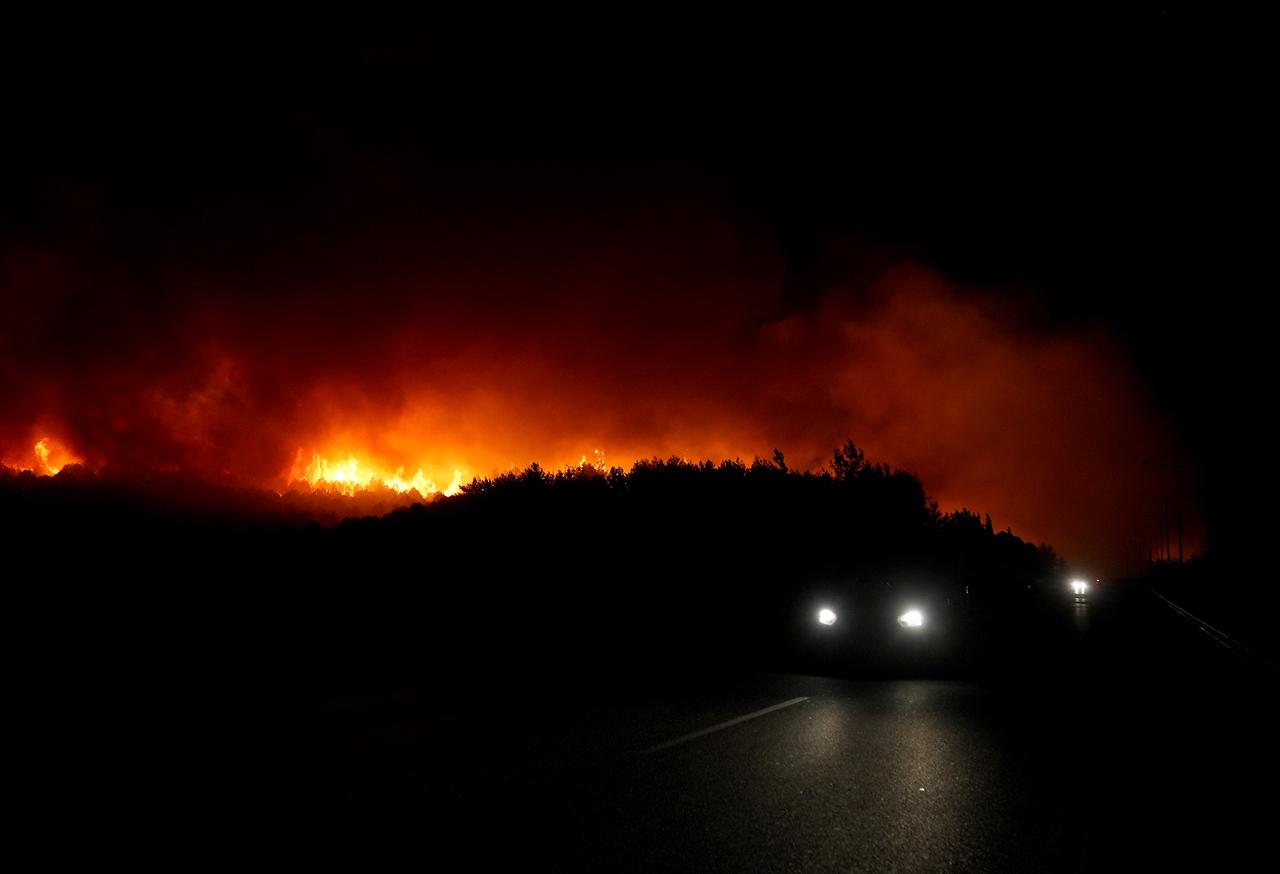
In Cesme district, a wildfire that began in agricultural land and spread to forested areas has forced the closure of the Izmir-Cesme Highway. The blaze, fueled by winds reaching 85 kilometers per hour, has been contained to the area near the highway through intense aerial and ground operations.
Izmir Governor Suleyman Elban confirmed that the Cesme fire originated from electrical lines, stating: "The Odemis and Cesme fires, as well as weekend fires in Seferihisar and previous fires in Foca and Aliaga, all started from electrical lines. Sparks from electrical lines ignited grass and spread to forests."
Meanwhile, in Buca district, a fire that started at 4 p.m. Thursday near Zafer neighborhood has spread toward Gaziemir district's Sarnic neighborhood. Authorities arrested two suspects who allegedly caused the fire while using a spiral cutting machine. The flames have advanced toward Kizik Furniture City in Kisikoy, with firefighting teams working to prevent the blaze from reaching the industrial area.
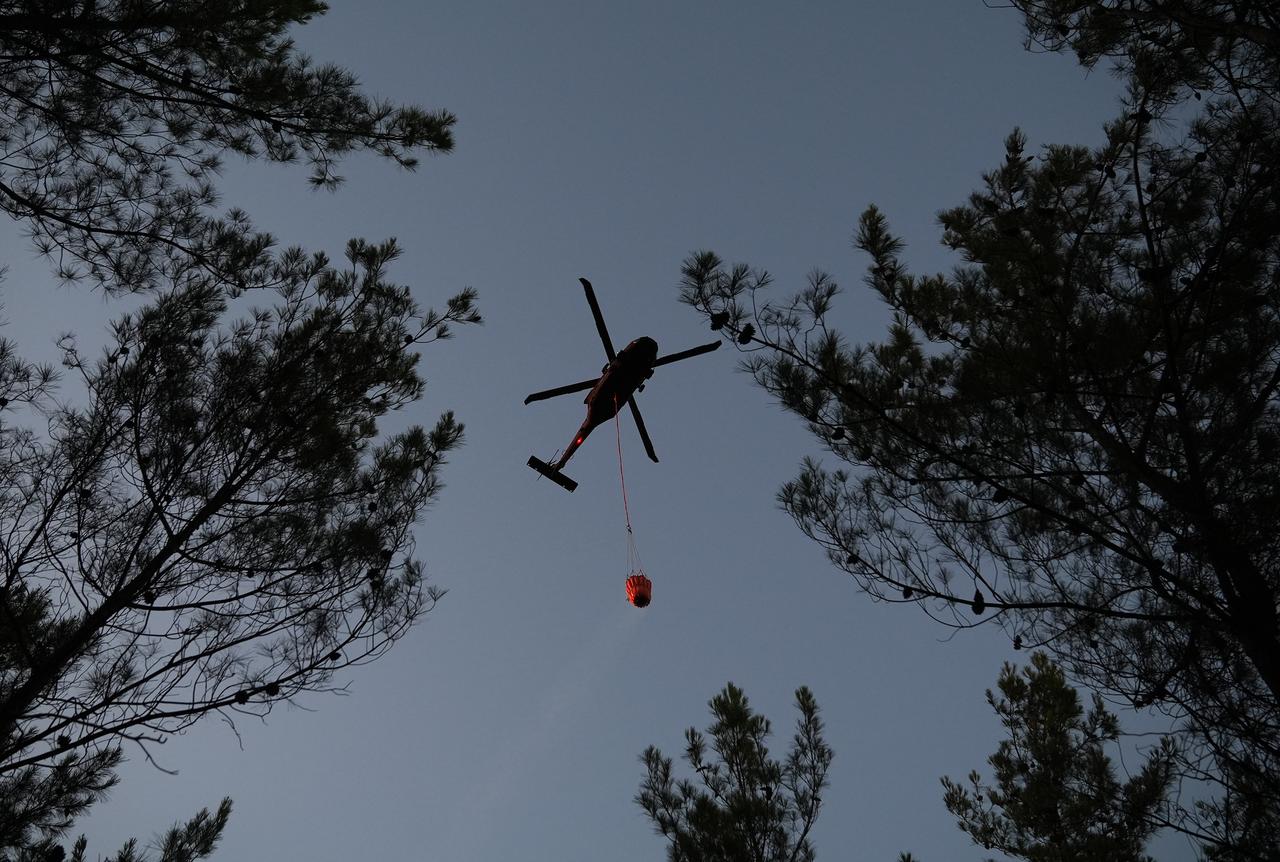
Izmir Governor Elban reported that firefighting efforts involve 9 aircraft and 22 helicopters conducting operations across both Cesme and Odemis, supported by approximately 110 ground vehicles and more than 6,000 personnel.
The province has deployed what officials describe as unprecedented resources, with Istanbul sending additional support. Izmir Metropolitan Municipality Fire Department teams are using specialized equipment including a foam tower capable of reaching 54 meters in height and delivering 6 tons of water per minute up to 60 meters away.
Transportation and Infrastructure Minister Abdulkadir Uraloglu confirmed that highway authorities have deployed 71 personnel and 53 machines and equipment from 11 different locations to support firefighting efforts in Izmir and other affected provinces including Aydin, Bilecik, Hatay, and Manisa.
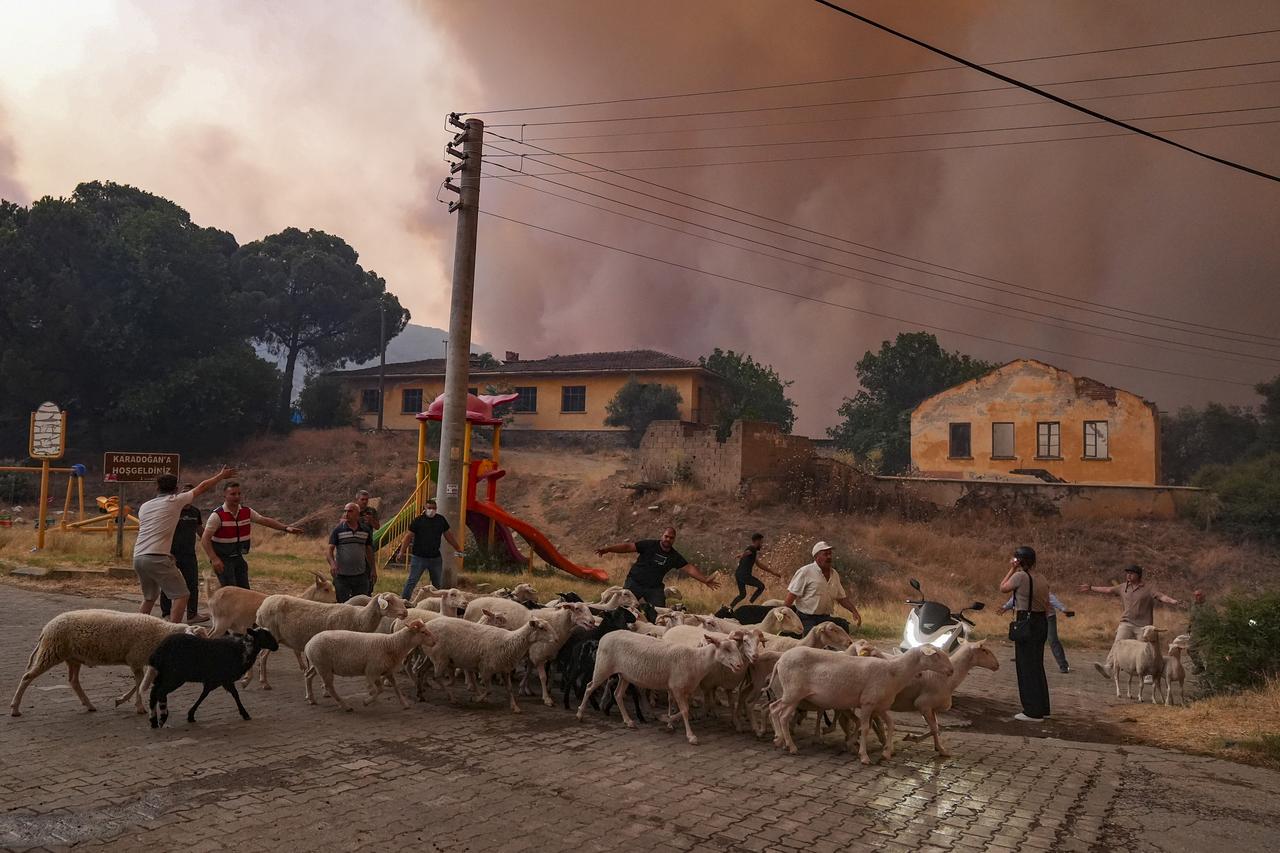
Gediz Electricity Distribution Company issued a statement Thursday evening addressing speculation about the fires' origins. "There is no concrete evidence that the fires in our region originated from electrical lines, according to initial field assessments," the company said.
The utility noted that electrical fires can occur year-round, not just in summer, and attributed the recent surge in fires to extreme weather conditions affecting the Mediterranean region. "Due to the extreme heating and extremely low humidity in our country and neighboring countries in the past week, hundreds of forest fires have broken out," the statement read.
As of Thursday evening, fires continue burning in Cesme, Odemis, and Buca districts, while authorities work to prevent further spread to populated areas and critical infrastructure.
The widespread fires have caused significant transportation disruptions beyond Izmir. In Istanbul, authorities temporarily closed sections of roads near fire zones, while the Izmir-Aydin Highway was completely shut down due to the Buca district fire affecting visibility and safety.
Transportation Minister Uraloglu reported that highway maintenance crews are actively supporting firefighting operations in five provinces: "In the forest fires that broke out in our provinces of Izmir, Aydin, Bilecik, Hatay and Manisa, support has been provided to firefighting activities with 71 personnel, 53 machine teams and equipment from 11 different locations belonging to our General Directorate of Highways."
The Izmir-Cesme Ring Road was reopened to traffic in both directions after being closed due to reduced visibility from smoke. However, access to Cesme continues to be provided through alternative routes via the IYTE junction through Karaburun and Ildir.
While Izmir battles its most severe fires, the wildfire crisis has expanded to Istanbul and other provinces, prompting a coordinated national response. Istanbul's Silivri district experienced a major fire that was brought under control after threatening residential areas, while authorities across Türkiye report dealing with hundreds of blazes in a single week.
Istanbul's Silivri district faced a significant wildfire Thursday afternoon when flames began in grassland near Canta Balaban neighborhood around 2:45 p.m. and quickly spread to forested areas due to strong winds. The fire, which Istanbul Governor Davut Gul said started when "a resident was barbecuing in his garden and dry grass caught fire due to wind," ultimately affected approximately 100 hectares of forest.
Governor Gul described the rapid response: "From the first moment of the incident, our Agriculture Minister and the entire ministry organization coordinated the response. Aircraft, planes, and helicopters are intervening as you can see." The firefighting effort involved 7 aircraft, 3 helicopters, 21 off-road vehicles, 22 tankers, 50 tractors, 19 construction machines, 56 fire trucks, 67 vehicles, and 691 personnel.
Silivri Municipality Mayor Bora Balcioglu expressed frustration with the scale of the blaze: "The forest fire has grown. We can no longer control it. It's approximately 500 decares now, a large area." The fire primarily affected pine trees, with Balcioglu noting the particular danger: "There's such a danger with pines. You extinguish it, 100 meters later, it continues underground. It flares up again 100 meters ahead."
Authorities evacuated 50 households in Canta neighborhood as a precautionary measure, with the Red Crescent establishing aid stations for displaced residents, personnel, and volunteers. Istanbul Governorate announced at 9 p.m. that the fire had been brought under control.
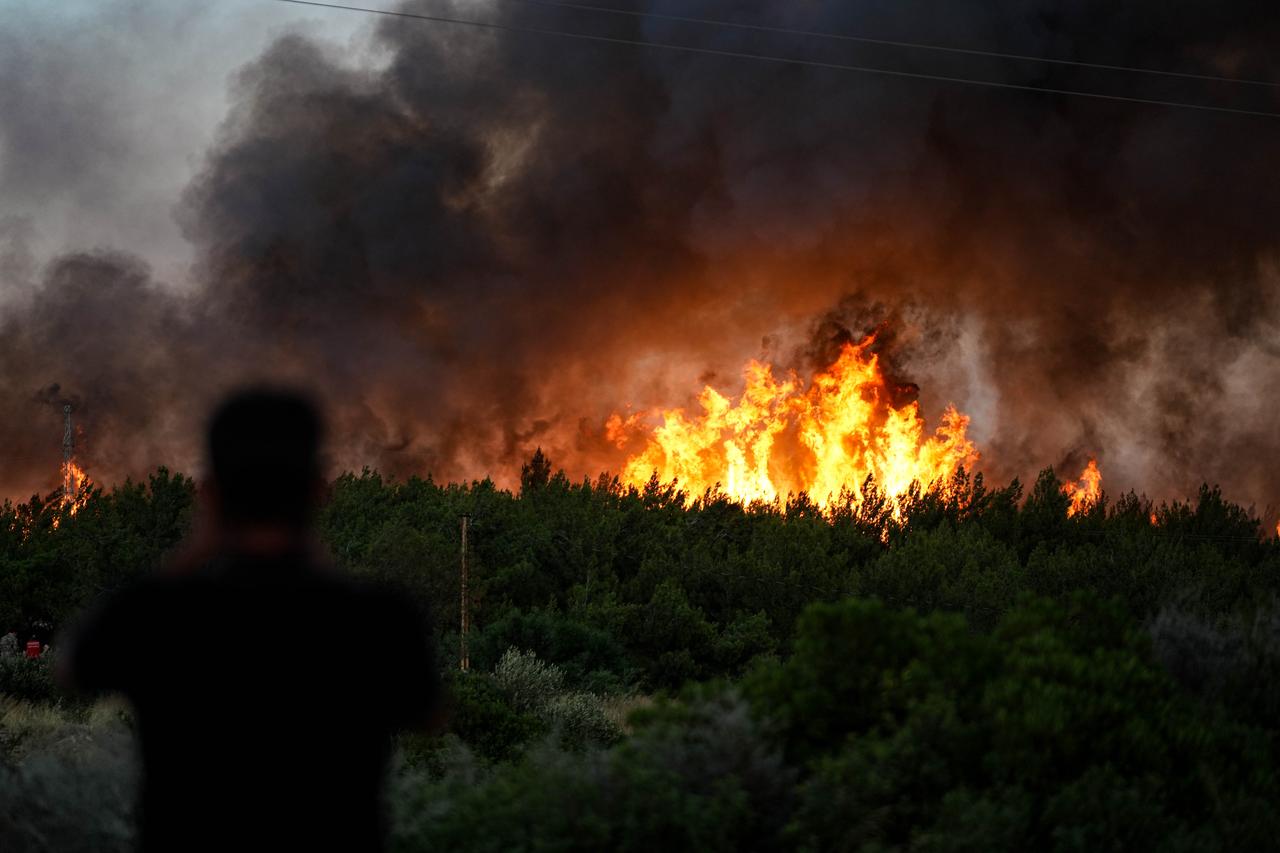
The Presidency's Communications Directorate released comprehensive statistics showing the nationwide scale of the wildfire emergency. Since January 1, 2025, Türkiye has experienced 3,015 fires - 1,295 in forested areas and 1,720 outside forests. The recent surge has been particularly intense, with 576 forest fires occurring in just the past week from June 26 to July 3, of which 331 began in non-forest areas before spreading to forests.
During this seven-day period, major fires occurred across multiple provinces including Izmir's Aliaga, Bornova, Menderes, Gaziemir, and Seferihisar districts; Manisa's Akhisar, Kula, and Ahmetli areas; Hatay's Antakya; Bolu's Goynuk; Adana's Kozan; Bursa's Mustafakemalpasa; and fires on the Sakarya-Bilecik border extending to Bilecik's Vezirhan.
Officials report that 574 of these fires have been brought under control using 27 aircraft and 105 helicopters that conducted 8,884 sorties and used 29,575 tons of water. Ground operations involved 25,000 personnel and nearly 6,000 off-road vehicles, initial response vehicles, and construction machines.
Interior Minister Ali Yerlikaya announced substantial financial aid for fire-affected residents across multiple provinces. In Izmir, 110 homes, 2 businesses, and 1 barn suffered severe damage, while Bilecik saw 69 homes, 3 businesses, and 27 barns heavily damaged. Manisa reported 5 homes with severe damage.
The government has allocated 21.6 million lira in total assistance: 14.2 million lira for Izmir, 5.7 million lira for Bilecik, and 1.6 million lira for Manisa. These funds cover shelter, relocation, and household goods assistance for affected families.
In Bilecik, authorities established container housing areas in two villages to accommodate 26 families temporarily. The containers include air conditioning, refrigerators, beds, bunk beds, linens, blankets, kitchen sets, water heaters, and stoves. Yerlikaya noted that these temporary housing solutions were completed within four days of bringing the Bilecik fires under control.